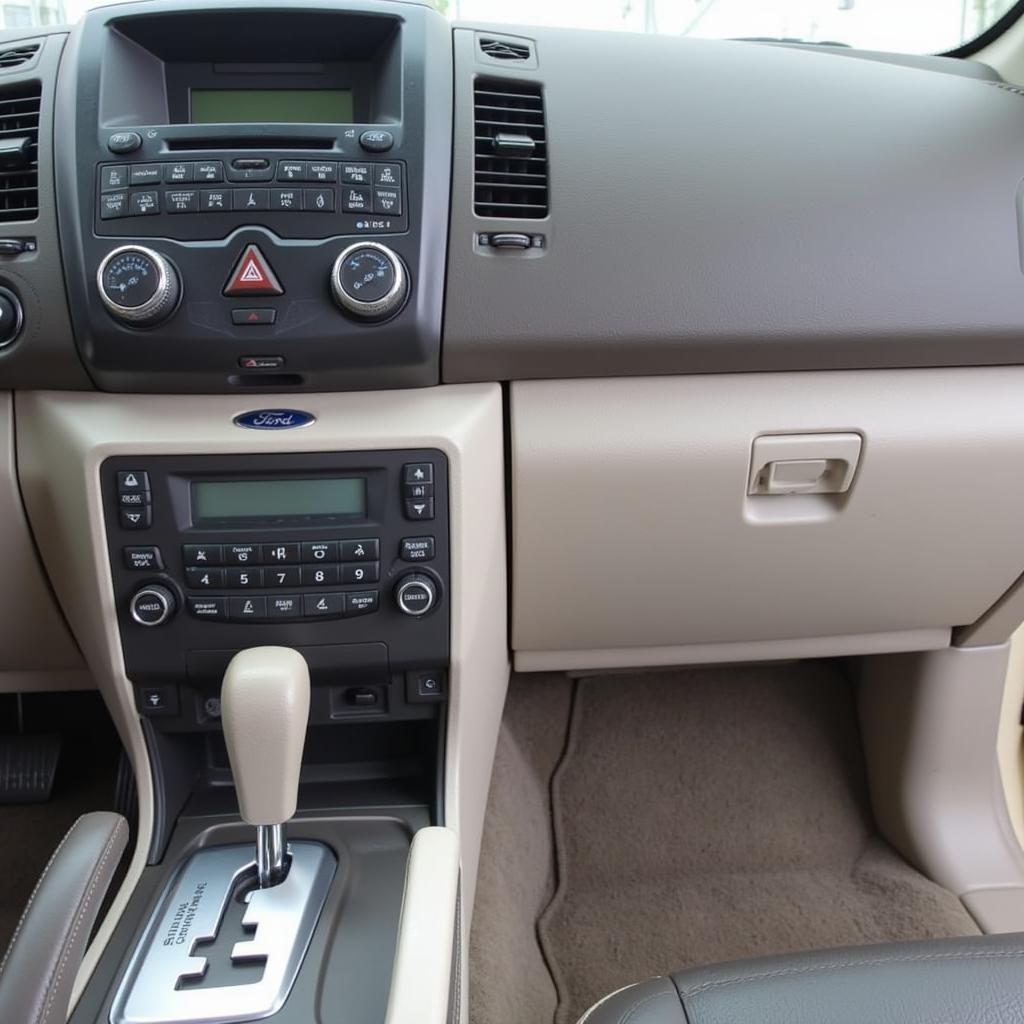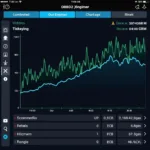When your Ford Explorer’s check engine light turns on, it can be a worrying experience. Fortunately, your vehicle is equipped with a system designed to help you understand what’s going on: the OBD2 system. This system generates specific codes that correlate to potential issues within your vehicle’s engine and emissions systems. Understanding these Ford Explorer OBD2 codes can be your first step in addressing minor problems before they become major headaches.
What are Ford Explorer OBD2 Codes?
OBD2, or On-Board Diagnostics, is a standardized system present in most vehicles manufactured after 1996. When your Ford Explorer detects a problem within the engine, transmission, emissions system, or other monitored areas, it triggers the check engine light and stores a corresponding OBD2 code within the vehicle’s computer. These codes are formatted as a combination of a letter and four numbers, such as P0301, which indicates a misfire in cylinder 1.
How to Read Ford Explorer OBD2 Codes
To access these codes, you will need an OBD2 scanner. This handy device plugs into your vehicle’s OBD2 port, usually located under the dashboard on the driver’s side. Once connected, the scanner can retrieve and display the stored codes.
While some scanners simply display the code, more advanced models offer descriptions of the potential problems associated with each code.
Here’s a simplified process:
- Locate the OBD2 port.
- Plug in your OBD2 scanner.
- Turn the ignition to the “on” position (do not start the engine).
- Follow the scanner’s instructions to read codes.
Common Ford Explorer OBD2 Codes
While numerous OBD2 codes can appear, some are more prevalent in Ford Explorers than others. Here are a few examples:
- P0171 and P0174: These codes indicate a lean air-fuel mixture, meaning the engine is receiving too much air or not enough fuel. This issue could be caused by a faulty oxygen sensor, mass airflow sensor, or a vacuum leak.
- P0300, P0301, P0302, etc.: These codes represent cylinder misfires. The specific number following “P030” indicates the affected cylinder (e.g., P0301 is cylinder 1). Spark plugs, ignition coils, fuel injectors, or even a failing catalytic converter can lead to misfires.
- P0420 and P0430: These codes signal a problem with the catalytic converter system, often indicating a decrease in efficiency. Damaged catalytic converters are usually a result of another issue, such as engine misfires or burning oil.
read obd2 codes without scanner ford explorer
What to Do When You Get an OBD2 Code
Seeing a check engine light and retrieving an OBD2 code can be daunting, but it’s essential to remain calm. Remember:
- The check engine light doesn’t always mean an immediate emergency. While some issues require immediate attention, others may not be as pressing.
- Research the specific code. Understanding what the code means can give you valuable insight into the potential severity of the problem.
- Consider your options. You can choose to diagnose and repair the issue yourself, take your vehicle to a trusted mechanic, or utilize the services of a specialized Ford dealership.
“Modern vehicles are complex. While OBD2 codes provide a valuable starting point, it’s crucial to remember they’re just indicators. Thorough diagnostics often involve additional tests and expert knowledge to pinpoint the exact cause and implement the right solution.” – John Miller, Certified Automotive Technician
Beyond the Basics: Advanced Diagnostics
While OBD2 codes offer a general understanding of potential issues, deeper diagnostics might be necessary for a comprehensive diagnosis.
Here are a few scenarios where further investigation is often required:
- Intermittent Problems: Some issues are sporadic and may not trigger a constant check engine light. These can be challenging to diagnose with just a basic code reader.
- Multiple Codes: When several codes are present, determining the root cause can be tricky, as one problem might be triggering others.
- Complex Systems: Modern vehicles involve intricate electronic systems. Advanced scanners and software might be necessary for a complete analysis.
obd2 code p0301 p ford explorer
Preventing Future Issues
Regular vehicle maintenance is crucial for minimizing the risk of triggering OBD2 codes.
Here are some preventative measures:
- Adhere to scheduled maintenance: Follow your Ford Explorer’s recommended maintenance schedule, including oil changes, spark plug replacements, and other crucial services.
- Address issues promptly: Ignoring minor issues can escalate into larger, more expensive problems.
- Use quality parts: When replacing components, opt for high-quality parts from reputable manufacturers.
- Drive responsibly: Aggressive driving and harsh conditions can put unnecessary strain on your vehicle’s systems.
Ford Explorer OBD2 Codes: Your Key to Car Care
Familiarizing yourself with Ford Explorer OBD2 codes empowers you to take a proactive approach to vehicle maintenance. By understanding these codes and addressing issues promptly, you can help extend the life of your vehicle and avoid potentially costly repairs down the road.
nexiq usb link 2 obd2 software
Need Help? Contact us on WhatsApp: +1(641)206-8880, Email: [email protected]. Our team is available 24/7 to assist you!


